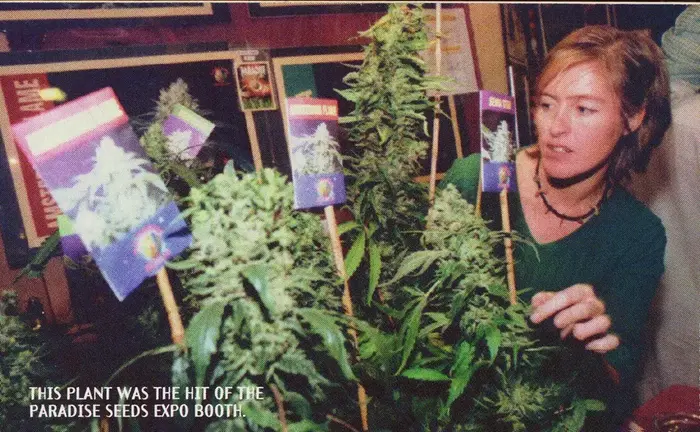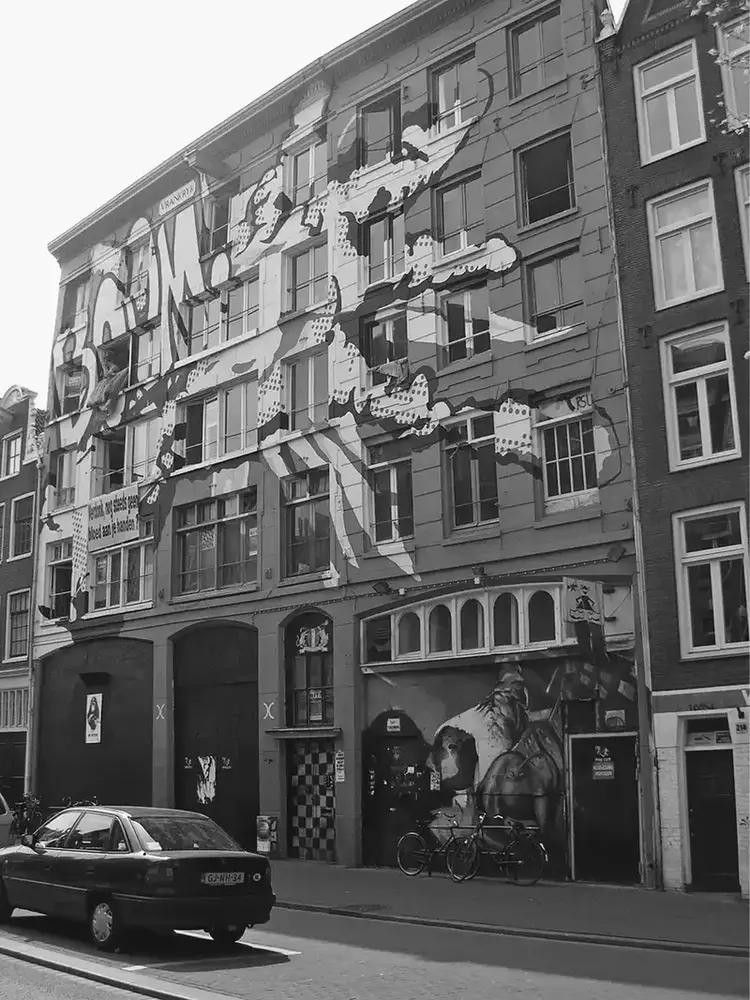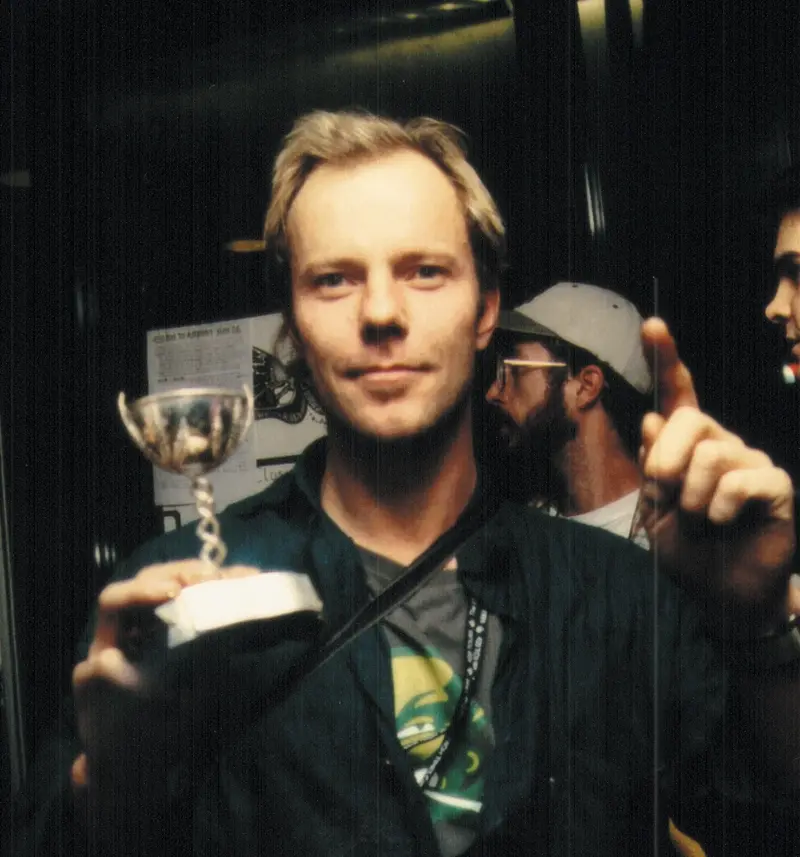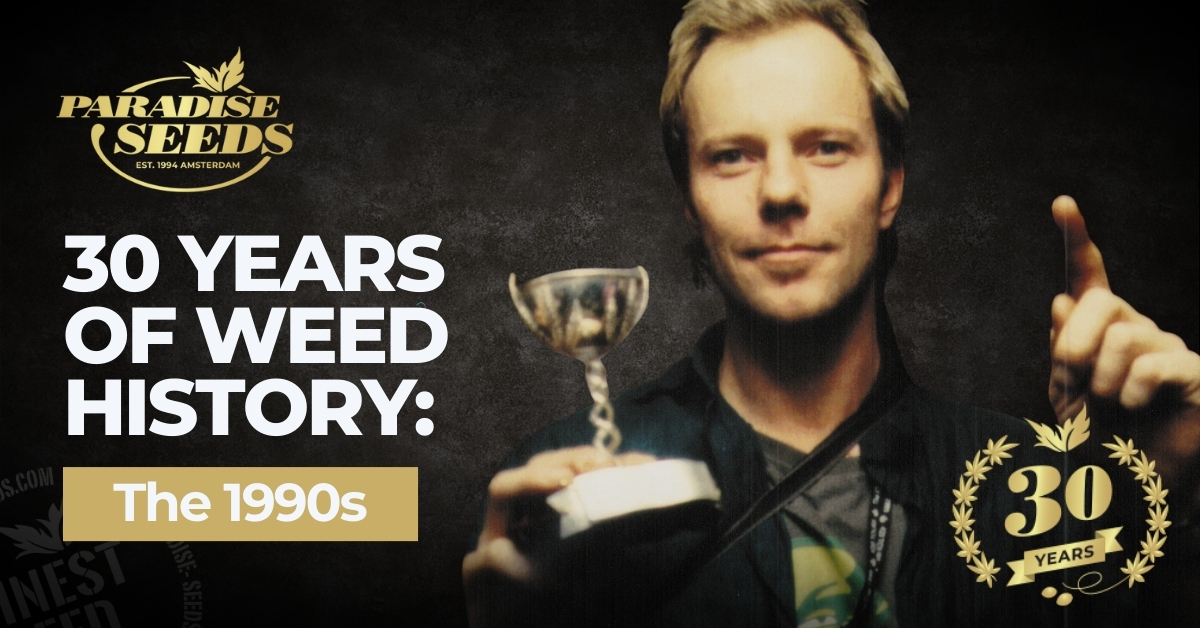We begin our series about the Paradise Seeds history with the 1990s, the decade of Paradise’s birth…
The weed world in 2024 looks very different to the world in which Paradise Seeds was born in 1994. The globe has been flooded with cannabis seeds and weed strains, cannabis celebrities have become normalised and legalization continues to spread its influence.
As Paradise Seeds celebrates its 30th birthday, throughout this year we will be focusing on a different era of Paradise’s weed history to show how the company’s story mirrors the changing face of the cannabis industry over the past three decades.

The birth of Paradise Seeds: Prologue
Before we begin exploring the Paradise Seeds history, it’s useful to seek out a bit of background. In fact the story begins in the late 1980s in the Dutch suburbs, where a teenage Luc Krol planted some Kabala seeds a friend had brought back from a Caribbean vacation on the island of Aruba.
“When I grew that first plant,” Luc remembers. “I harvested it and smoked the buds with a couple of friends and that was it! I was in love with cannabis and from that day on I dreamt of growing the best cannabis in the world.”
Paradise Seeds history: Amsterdam squat years
Fast forward a few years in the Paradise Seeds history and Luc is living in Amsterdam in the early 1990s. In order to put things into perspective in terms of weed history it serves to remind ourselves of what a different place the world was in the 1990s.
Mobile phones were basic and not in wide use (they were also very big). There was no internet and grow knowledge was only available in books, like the legendary grow bible, Marijuana Grower’s Guide by Ed Rosenthal, or passed on through word of mouth.
Amsterdam was a very different city to the tourist hotspot it is now. Since the 1960s, squatters had been occupying abandoned buildings and, following riots and street fighting in 1980 the squatter movement took on a political (anarchist edge).
There was still a significant squat scene in the early 1990s and, after moving to Amsterdam, Luc began living in squats. The creative, tolerant and anarchic atmosphere – not to mention huge spaces at his disposal in various city centre squats – focused Luc on furthering his passion to grow weed.
At the time of this chapter in weed history the Netherlands, and Amsterdam in particular, was an enigma. A Western world capital city where cannabis was tolerated and could be openly bought and consumed consumed on city streets, in parks, on the city’s Dam Square and of course in coffeeshops.
This made it a magnet for cannabis travellers, many returning from landrace genetics hotspots in the Himalayan Kush, southeast Asia and South America. Amsterdam was also home to an American pot diaspora, escaping persecution from the authorities who were targeting cannabis as part of the War on Drugs.
Early Paradise Seeds Breeding Experiments
It was in this mix that Luc started collecting and exchanging seeds and building up a formidable collection for his breeding experiments. The holy grail was to breed strains which could be grown outdoors in a northern European summer. Back then he was also experimenting with indoor growing, which was in its real infancy.
As Luc remembers, “I was growing in squats. In one place I had a whole floor devoted to indoor plants and experimenting with different lights. I used fluorescent tubes, which weren’t so strong, but street light bulbs were better. I used to swap them for weed!
In the summertime, the rooftop would be converted into a cannabis garden, with many plants growing in pots. It was a time of real experimentation, making our own soils and fertilizers.”
One Amsterdam coffeeshop in particular was a popular meeting spot for cannabis travelers, named Lucky Mothers, a coffesshop with a legendary reputation in Amsterdam weed history. To help fund his breeding habit, Luc sold some of the weed he grew.
“Amongst the strains was one I named I called it Mother’s Milk, which was particularly popular. As the reputation of the weed grew, people started asking to buy seeds, particularly Americans who were taking them back to distribute amongst underground growing networks, particularly in California and on the West Coast.”

Paradise Seeds born from a police bust!
By 1994 Luc had a collection of strains he’d created, but disaster struck when his growing operation was busted by the police. However, it turned out to be a blessing in disguise. The lawyer for his defence, recommended that he set up legitimately as a company providing cannabis seeds, which was legal under Dutch law. That year Paradise Seeds was born!
Luc launched Paradise Seeds with five official varieties, which included a strain called Amsterdam Flame, Nebula, Sheherazade and the original Dutch Dragon. For the next couple of years he intensified his breeding process, all the time gaining a reputation for growing great weed, while building a mail order business as one of just a handful of Dutch cannabis seed companies.
There was one strain in particular, which was creating ripples of excitement on the scene. It was a highly potent indica with a unique flavor of mint, fuel, pepper and perfume all rolled into one mouthwatering bundle. The thick carpet of trichomes created a plant which was resinous which defied belief. That strain was Sensi Star which would create its own bit of weed history (with 65+ descendent strains over the years).

High Times for Paradise Seeds
Back in the 1990s, the way to making a name for your weed was pretty limited. A reputation beyond Amsterdam depended on winning a cannabis cup. In those days the Champion’s League final of cannabis was Amsterdam’s High Times Cup, run by the prominent US based cannabis magazine.
Luc and his Paradise Seeds crew launched a guerrilla marketing offensive at the 1998 edition of the cup. This included a ‘Dutch’Santa (Sinsterklass) distributing Sensi Star buds out of his sack and Luc walking around the cup venue with two bushy plants under his arms displaying their amazing aesthetic charms. Luc remembers being mobbed by the crowd who couldn’t believe the quality of the Sensi Star.
One year later, Paradise announced itself on the scene with a bang! Sensi Star was recognized. It won the High Times Cup (with Nebula taking 2nd place), and then won the Highlife Cup too.
As the world celebrated the arrival of the Millenium, and the passing from the 20th to the 21st century, Paradise Seeds greeted the new century as one of the hottest seed companies on the scene.
This is the first article in a mini series of articles to celebrate 30 years of Paradise Seeds history. Keep an eye out for more Paradise history on our blog and on our social media channels over the coming months!


